Each year, just days after the Muslim festival of Eid al-Adha (Ileya), the peaceful town of Ijebu-Ode in Ogun State transforms into a dazzling spectacle of culture, fashion, tradition, and royal pageantry. This transformation is called the Ojude Oba Festival—a name that translates to “in front of the king’s palace.” It is more than a festival; it is the soul of the Ijebu people on full display.
1. Ojude Oba Means “In Front of the King”
The name itself reflects the essence of the festival—it is a homage to the revered Awujale (the king of Ijebuland), where citizens gather to pay respect at the palace square.
2. It Is Held Two Days After Ileya (Eid al-Adha)
Ojude Oba is uniquely tied to the Muslim calendar. It takes place on the third day after Eid al-Adha, blending religious observance with cultural heritage.
3. It Originated Over 100 Years Ago
The roots of Ojude Oba can be traced back to the late 19th century, when early Muslim converts in Ijebu began visiting the Awujale after the Eid prayers to express their loyalty and gratitude.
4. It Began as a Muslim Gathering
Although the Ijebu are a mix of Muslims, Christians, and traditionalists, the festival originally started as a Muslim thanksgiving event. Over time, it evolved into a unifying cultural celebration for all Ijebu people.
5. It Celebrates the Awujale, Not a Deity
Unlike traditional festivals that may honour gods, Ojude Oba is purely a celebration of loyalty, heritage, and respect for the king. The Awujale sits in regal splendour, receiving tributes from age-grade groups and families.
6. Regberegbe: The Age-Grade Parade
The heartbeat of the festival lies in the Regberegbe—age-grade groups. Each group, colourfully attired, marches to the palace with dancing, music, and gifts. It’s a stunning show of unity and pride.
7. Fashion is a Competition
Ojude Oba is Nigeria’s runway without borders. Each Regberegbe competes not just in performance, but in aso ebi (uniform fabric) style. From lace to damask to silk, the creativity is breathtaking.
8. Horse-Riding Is a Major Highlight
The Ijebu warrior families, especially the Balogun and Otun titles, showcase decorated horses in thrilling parades. It’s a nod to Ijebu military history and Islamic cavalry influence.
9. It Boosts Tourism and Local Economy
Hotels, tailors, food vendors, and transporters enjoy a boom. Thousands of visitors troop into Ijebu-Ode, making it one of Ogun State’s biggest tourist attractions.
10. It Is Fully Sponsored by Ijebu Sons and Daughters
From billionaires to artisans, Ijebu indigenes contribute to making the festival a grand affair. Corporate sponsors also play a key role—names like Globacom, founded by Otunba Mike Adenuga (an Ijebu son), often top the list.
11. It Unites All Religions and Classes
Muslims, Christians, and traditionalists all celebrate Ojude Oba. It is proof that culture can bind where religion may divide. Rich and poor dance side by side in shared joy.
12. Ijebu Culture Is on Full Display
From ewedu soup and amala to ijebu garri, from local drummers to cultural dancers, every element of Ijebu tradition is proudly on display. You can taste, see, and hear the culture.
13. It Promotes Intergenerational Bonding
Young people participate with the elderly in their Regberegbe groups, promoting respect, mentorship, and continuity. It’s cultural heritage in action.
14. Security and Organisation Are Top-Notch
Thanks to a well-organised committee, crowd control, safety, and emergency response systems are effective. The palace works with the police, paramilitary, and volunteers to ensure a smooth festival.
15. It Is a Global Affair for Ijebus in the Diaspora
Ijebu people from London to Atlanta, from South Africa to Canada, often fly in just to attend Ojude Oba. It is more than a festival; it is a homecoming, a badge of pride, a declaration of identity.
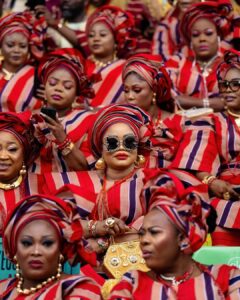
Ojude Oba is not just a cultural festival—it is a living, breathing testament to the resilience, unity, and sophistication of the Ijebu people. It is a moment when we honour our past, celebrate our present, and embrace the future—together, as one people.
So, if you ever want to witness culture at its most colourful and community at its most committed, visit Ijebu-Ode during Ojude Oba. You’ll leave with memories—and perhaps a little more love for Nigeria.
E kaabọ si Ijebu! (Welcome to Ijebu!)






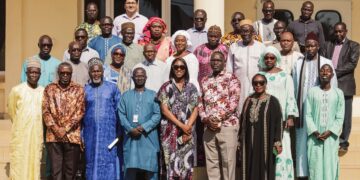























































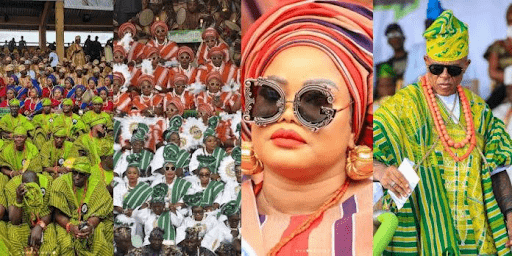




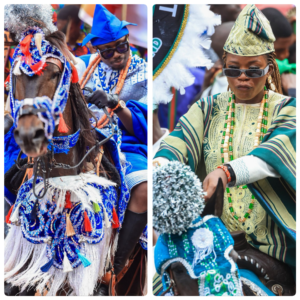
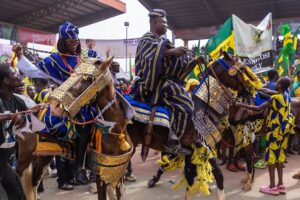
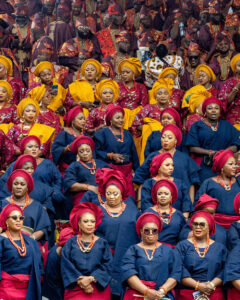


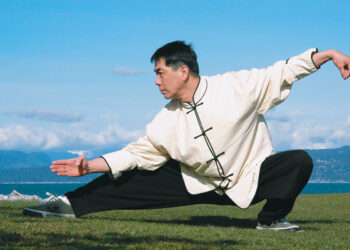
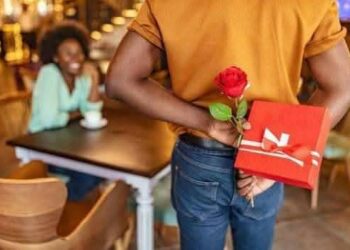












 EduTimes Africa, a product of Education Times Africa, is a magazine publication that aims to lend its support to close the yawning gap in Africa's educational development.
EduTimes Africa, a product of Education Times Africa, is a magazine publication that aims to lend its support to close the yawning gap in Africa's educational development.